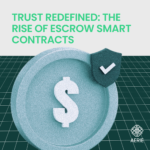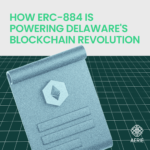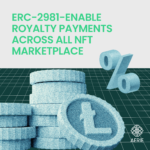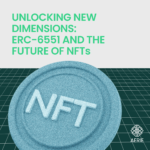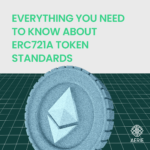“Tokenizing Real Estate”: NFT Advantages on Real Estate

The world continues to embrace the digital revolution, and the real estate industry is no exception. With a global market valued at over USD 3 trillion, the potential for non-fungible tokens (NFTs) to disrupt how we buy, sell, and manage properties is fascinating. In this exploration, we’ll uncover how NFTs can enhance the real estate sector, tackling some of the industry’s most pressing challenges along the way. With benefits like improved security, simplified transactions, and increased accessibility, NFTs are set to make waves in the real estate world. So, buckle up and join us as we delve into the groundbreaking impact of NFTs on the future of real estate!
Real Estate Pain Points
Liquidity and Geographical Limitations
Liquidity and geographical limitations are significant pain points in the real estate industry. Properties are typically considered illiquid assets because they often take a considerable amount of time to sell and convert into cash. This slow process can hinder both sellers and buyers, leaving them in a financial bind or delaying their ability to move on to the next investment. Moreover, real estate investments are often tied to specific locations, making it challenging for investors to diversify their portfolios and access opportunities in different regions. Potential buyers can also struggle to access their dream homes, as real estate agents’ networks and connections are often the gateways to desirable properties. These combined factors can make it difficult for buyers and investors alike to find the perfect fit, leaving them feeling frustrated and limited by the constraints of the traditional real estate market.
Expensive Costs on Procedures
The high transaction costs associated with buying and selling properties pose another challenge in the real estate industry. These costs can include agent commissions, legal fees, taxes, and other miscellaneous expenses that can quickly add up, making the entire process expensive and sometimes prohibitive for investors. This financial barrier can deter potential buyers and investors from engaging in real estate transactions or expanding their portfolios. Additionally, these costs often contribute to reduced profitability and a less dynamic market. Investors may be more cautious or hold onto their assets longer to minimize losses from transaction fees. As a result, the expensive nature of the traditional real estate transaction process can limit opportunities and hinder growth within the industry.
Difficult Entry for Smaller Investors
The real estate industry can be particularly challenging for smaller investors, as there are multiple factors that make entry difficult. One primary reason is the limited fractional ownership options. Typically, investing in real estate requires substantial capital, which can be a significant barrier for smaller investors who want to participate in the market. Additionally, the lack of transparency in traditional real estate transactions poses another challenge. With multiple parties involved and a complex process to navigate, it’s common for potential disputes and fraud to arise, making the market even less appealing to smaller investors. These factors combined create an environment where smaller investors struggle to enter the market and take advantage of the potential opportunities that real estate investment can offer.
Inefficient Procedures and Payment
In the real estate industry, inefficient procedures and payments can create significant pain points for both buyers and sellers. One major issue is the slow and cumbersome property transfer process. With numerous paperwork and legalities involved, delays and increased costs are common, making transactions vulnerable to potential setbacks. In some cases, extra days or weeks may be needed to resolve issues, exposing participants to market risks and further complications.
Another challenge faced in the rental market is the issue of rent arrears. Tenants falling behind on rent payments can cause financial stress for landlords and potentially lead to legal disputes. These inefficiencies not only impact the profitability of the investment but can also take a toll on the stakeholders involved, both monetarily and emotionally. Tackling these pain points is crucial for creating a more efficient and accessible real estate market.
NFTs Advantages on Real Estate
So are NFTs the savior for the Real Estate market again? Like in other industries, it just offers a better experience. Let’s look at what changes can be made in the old-fashioned, traditional, constant Real Estate Industry.
Improved Security and Transparency
NFTs offer significant advantages in the real estate industry, particularly in terms of improved security and transparency. By digitizing property ownership records and transactions, NFTs can streamline the tracking and verification process, reducing the risk of fraud and fostering a more transparent and trustworthy market. This increased transparency gives buyers access to comprehensive property histories and information. At the same time, sellers can confidently showcase their properties with verifiable data.
Another advantage lies in the integration of smart contracts for rent and payment management. Real estate NFTs, when paired with smart contracts, automate rent collection and payment processes, minimizing the likelihood of arrears and simplifying the rental experience for both landlords and tenants. This saves property owners time and effort and reduces the emotional burden associated with managing difficult tenants. Moreover, this approach enables owners living abroad to manage rental payments effortlessly, helping to minimize disputes and enhance overall efficiency in the real estate market.
Simplified Exchange Experience
NFTs have the potential to revolutionize the real estate industry by simplifying the exchange experience for buyers and sellers. By eliminating intermediaries and automating various steps in the transaction process, NFTs offer greater freedom and control for those involved in property deals. This approach removes concerns about intermediary fees and execution, which can often hinder potential buyers and investors from participating in real estate transactions or diversifying their portfolios.
Imagine a real estate market that operates much like an NFT marketplace, where users can easily browse, access, buy, and sell properties, filtering their search based on specific attributes and preferences. This user-driven, convenient approach opens up new opportunities for potential buyers to discover their ideal property, similar to how NFT collectors search for popular attributes in digital art. Ultimately, a simplified exchange experience paves the way for faster transactions, reduced costs, and a more seamless experience for everyone involved in the real estate market.
Fractional Ownership
NFTs can bring a transformative approach to real estate investment through fractional ownership, enabling multiple investors to own a share of a property. This concept opens up the real estate market to smaller investors who may have been deterred by the traditionally high entry costs. Fractional ownership allows them to invest in tangible assets like real estate, which they might prefer over stocks, crypto, or futures.
Moreover, fractional ownership empowers investors to diversify their real estate portfolios by investing in multiple properties rather than being limited to one. This added flexibility introduces new potential mechanisms in the field, such as voting rights among fractional owners to determine property development decisions. Additionally, fractional ownership can cater to the modern lifestyle, where people often travel or stay in different locations for short periods. Owning a fraction of property in various countries can provide not only a portion of rental income but also the right to stay in the property for a short duration, suiting the needs of remote workers or travelers. Overall, fractional ownership through NFTs can make real estate investment more accessible and affordable for a wider audience while providing liquidity and flexibility for property owners.
The Uprising of the Virtual Real Estate Market
The rise of virtual worlds and metaverse platforms has created a burgeoning market for virtual real estate. NFTs are the native and ideal solution to establish and manage this market. Acquiring a piece of land or property in a virtual environment is becoming increasingly common, particularly among younger generations and tech-savvy individuals. The ease of use, gamified experience, and relatively low entry cost have made virtual real estate a popular choice for investment or collectibles. As the virtual real estate market continues to grow, the adoption of NFTs for representing these digital assets is only a matter of time before becoming mainstream.
Current NFT/Metaverse Real Estate Companies
RealT
RealT is a real estate company specializing in properties across the United States, focusing on cities like Chicago, Detroit, and East Cleveland. The firm provides an affordable and streamlined investment experience by eliminating the need for traditional paper deeds.
Leveraging the Ethereum blockchain, RealT enables investors to acquire fractional ownership of real-world properties through NFTs known as RealTokens. As a property owner on this platform, you can enjoy weekly rental income and have the flexibility to liquidate your investment whenever you wish, using their user-friendly online portal.
Propy
Propy is a real estate platform harnessing the power of Web3 Technology to offer a comprehensive solution for property seekers, covering everything from browsing extensive listings to negotiating deals with sellers.
With the launch of its NFT platform in the United States in January 2022, Propy enables users to buy and sell real-world properties as NFTs. Buyers can quickly access legal documents that signify ownership by recording real estate transactions on the blockchain. It’s worth noting that ownership of real-world properties through Propy’s platform is not fractional. Buyers not only acquire a specific property, such as one in Florida, but also gain ownership of a US-based entity that holds the same land.
Possible Futures
As NFTs are more prevalent in the real estate industry, we can envision a future where property transactions are significantly simplified and more accessible. In this new era, individuals will no longer need to worry about managing cumbersome paper credentials or navigating complex procedures. The lowered entry barrier will enable a broader range of people to invest in real estate, much like they do in stocks and cryptocurrencies. One fascinating possibility is the concept of owning fractions of properties worldwide, allowing individuals to enjoy short stays in different countries, perfectly complementing their travel and remote working lifestyles. Overall, integrating NFTs into the real estate market can revolutionize how we buy, sell, hold, and invest in properties, making the entire process more seamless and user-friendly.


